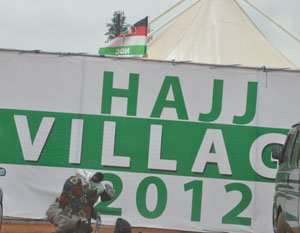
The Ghana Airport Company Limited’s (GACL) initiative to build a Hajj Village has sparked debates, with some attempting to equate it with the National Cathedral project. However, this comparison is not only misplaced but also risks promoting religious bigotry.
The Hajj Village and the National Cathedral serve entirely different purposes, with distinct economic and social impacts. Drawing such parallels only fuels unnecessary religious divisions.
From a project management perspective, critical considerations such as value for money, investment returns, and corporate social responsibility are key. The Hajj Village aligns well with these principles, offering a clear path to revenue generation.
The annual Hajj pilgrimage generates substantial revenue for the government, contributing significantly to the national economy. Investing in infrastructure to support this steady revenue stream is a sound business decision, adhering to the business entity concept where surpluses are reinvested into expanding and enhancing services.
A critical issue that warrants attention is the exorbitant cost of Hajj for Ghanaians. While the current administration recently reduced the fare by GHS 10,000, it still remains significantly higher than in neighboring countries.
My recent findings reveal that a family member who visited Mecca for Umrah (a spiritual visit to see Rasulullah at his grave) spent less than GHS 15,000. In stark contrast, the cost of the Hajj pilgrimage last year was GHS 70,000. Even with the inclusion of expenses such as food, healthcare, and other services, the fare remains difficult to justify.
This discrepancy suggests that the government is making substantial returns from the pilgrimage, raising questions about pricing transparency and fairness.
Many Ghanaian pilgrims, facing these high costs, have opted to use airports in Togo and other neighboring countries where travel is more affordable.
This trend highlights the urgent need for competitive pricing and improved facilities within Ghana. The Hajj Village project is, therefore, a strategic initiative to enhance services, retain pilgrims, and maximize domestic economic benefits.
Unlike the National Cathedral, whose financial viability remains unclear, the Hajj Village project promises a guaranteed return on investment.
The government consistently benefits from Hajj operations, with GACL generating revenue from airport services and related economic activities. The project is not just about religious support but also about economic sustainability and transparency.
Ghana’s reputation for religious tolerance and harmony should not be jeopardized by misguided comparisons or religious biases. The focus should remain on projects that offer tangible benefits, promote transparency, and ensure accountability.
The Hajj Village is a prudent investment with measurable returns, reflecting a balanced and strategic approach to national development.
It is crucial to avoid allowing religious bigotry to cloud our judgment when evaluating national projects. Decisions should be driven by economic rationale, transparency, and the broader public interest, ensuring that Ghana continues to thrive as a nation of unity, tolerance, and progress.
By Issah Amadu
(0241504075)
March 3, 2025


